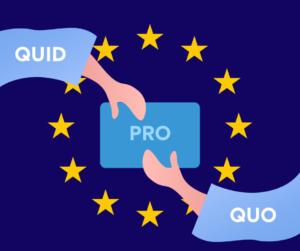Headquarters: Svetog Nauma 7, 11000
Office address: Đorđa Vajferta 13, 11000
Phone:: +381 11 4529 323

This month we are marking ten years since the European Council laid down the foundations for the ongoing relations between the European Union and the countries of the Western Balkans, commonly known as the conclusions from the Thessaloniki Summit.
This document is very often cited as a point of reference to emphasise the EU’s commitment to pursue enlargement and integrate the Western Balkans into its club of members. In reality, however, the key messages from this summit tend to be over-interpreted. What is the real meaning of these conclusions? Does the EU stand behind its words? And finally, what is the state of play in the EU-Western Balkans relations on the tenth anniversary of the Thessaloniki Summit?
At the Thessaloniki Summit, the Western Balkan countries were given the “…unequivocal support to the European perspective [emphasis added]”, while “[T]he speed of movement ahead lies in the hands of the countries of the region.” This is an obvious dilution of the language compared to the ‘Big Bang’ enlargement, when the strength of declarations and documents ‘rhetorically entrapped’ the member states to accept the twelve new members in 2004 and 2007.
As a result, the ‘historical imperative’ to reunify Europe has ceased to be the main driving factor of enlargement, and the enlargement process itself has become more complex and demanding. The acquis communautaire has grown from 31 to 35 chapters. In addition to the Copenhagen criteria, Thessaloniki conclusions envisage regional cooperation and the cooperation with the ICTY as integral conditions for advancement towards the EU membership. Stabilisation and Association Agreements require not only to be in force, but also to be “effectively and efficiently implemented”. One can add to this the external condition, namely the “integration capacity of the EU” (European Council conclusions, December 2006). The accession negotiations have become “an open-ended process whose outcome cannot be guaranteed beforehand” (Negotiating Framework of Croatia, point 11), while the important negotiating chapters are subject to ‘opening and closing benchmarks’. Finally, the Lisbon Treaty increases the requirements of the acceding states, which are required not only to respect the values of the EU, but also to promote them (Article 3 TEU). At the same time, it provides more flexibility to the member states, which can extend the conditions for membership without Treaty change (Article 49, TEU states “…The conditions of eligibility agreed upon by the European Council shall be taken into account.”).
Internal difficulties in dealing with the club of 27 member states, consequently making the enlargement process more complex, coupled with persisting economic and identity crises inside the EU, have induced not only the ‘enlargement fatigue’, but also the fatigue among the acceding countries. Public opinion surveys demonstrate that the closer the country is to become a member of the EU, the less public support for membership it has. At the moment, Croatians are far more against the entry into the EU than the Bosnians, for example. In Serbia, public support for the EU membership is shrinking progressively. It reached its peak in December 2009 with 73% support, following visa liberalisation, while today the bar stands at 41%. Yet, the majority of citizens are in favour of the reforms required by the EU (61%). The decline of support for the EU, caused by the lengthiness of the enlargement process, can be counterbalanced with periodic “carrot-offering”, for which the visa liberalisation was the perfect example.
Ten years ago, the greatest challenge for the Western Balkans was to alleviate the nationalistic and retrograde political forces. Today, the political scene in the countries of the region is consolidated in favour of the integration into the EU. Obviously, numerous challenges remain, most notably regional cooperation among the Western Balkan countries and strengthening their institutional capacities. The pace of progress on the side of the Western Balkan countries seems slow, while the commitment of the EU to integrate the Western Balkans seems somewhat weak. Croatia’s entry to the EU represents a signal that the enlargement process is to be continued, but with the uncertain outcome and a long break before the next country will be ready to join.